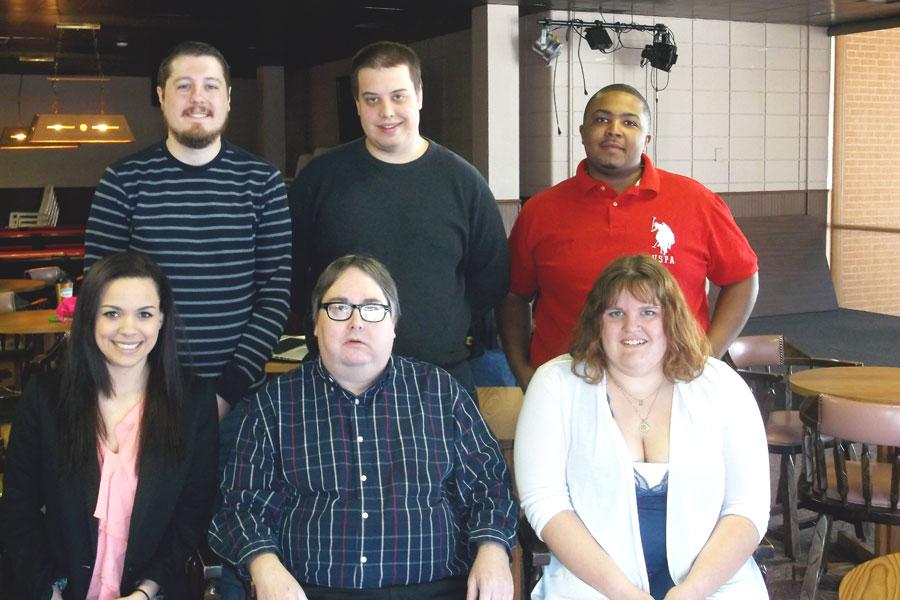After John McKenzie, assistant professor of communication, inquired about the addition of debate for an extracurricular activity, the proposal gained momentum quickly to create Lakeland’s new debate team. Formed in fall 2012, spring 2013 was its first active semester and the team has already seen significant success.
Current team members include Team President Allyssa Ourada, a freshman majoring in communication, Team Vice President Dustin Long, a senior majoring in psychology and sociology, Kaitlin Deschane, a freshman majoring in non-profit management and history, and Jeremy Cain, a sophomore majoring in business management.
Two new members will be joining the team in fall 2013, and new prospects are on the horizon.
“We have had some high-school students come and visit for the day who will be students next year who are debaters themselves,” said McKenzie.
Director of Debate and Forensics David Henning recently won the Wisconsin Debate Coaches’ Association (WDCA) 2012-2013 Coach of the Year award for his two high school teams.
With the expenses associated with debating, including travel, technology, and research, the number of teams has been reduced in the past years due to budget cuts.
“The number of schools that have debate now, compared to when I was in high school, is less than half,” Henning said.
“In high school, I always wanted to debate, but I didn’t have the time or availability to do it,” Ourada said. “Since I am a communication major, I thought it was a good step to join it.”
Lakeland’s decision to create a debate team offers current and future students the opportunity to learn a wide variety of skills.
“It’s fun. It engages your communication skills, helps with public speaking, helps you learn how to do research quickly, and helps your presentation skills,” Long said.
McKenzie said reflection of his experience in debating, “It made me a confident and competent speaker. I was able to articulate arguments more clearly with critical thinking. You see issues in completely different ways when you have to argue both sides of them all the time.”
Debate teams have three different types of debate for competition—policy, parliamentary, and world. “What we currently are working on is world debate, which is a format fairly new in the U.S.,” Henning said. “It’s big in England and elsewhere.”
Currently the team is researching for a world debate for their first competition at Edgewood on March 23. Afterward the team travels to Purdue University on March 29 and 30 for their second competition. Since the team became active in spring, policy debate will not begin until fall 2013 to allow the members extra time to prepare for it.
Debate also offers students academic competition. “Winning a debate is like winning a basketball game,” Long said. “You still get a feeling of accomplishment.”
“It is a great thing to put on your résumé,” Ourada said. “It’s good for a look of professionalism.”
Team members are required to do research on various topics, be familiar with flowing—which is a note-taking technique used in debate, learn to give a speech for nine minutes, keep up with current events, and show up for the Tuesday and Thursday practices from 11 a.m. – 1 p.m. in the Pub.
Course credit can also be earned for the extracurricular by registering for Com 180 Debate Practicum on Mondays at 3:30 p.m.
Forensics will be added in either the spring or fall of 2014. “Our initial team development was to start this semester in world and policy debate and then add forensics,” Henning said.
Any interested students can drop by a practice and have fun while also learning valuable speaking skills.


